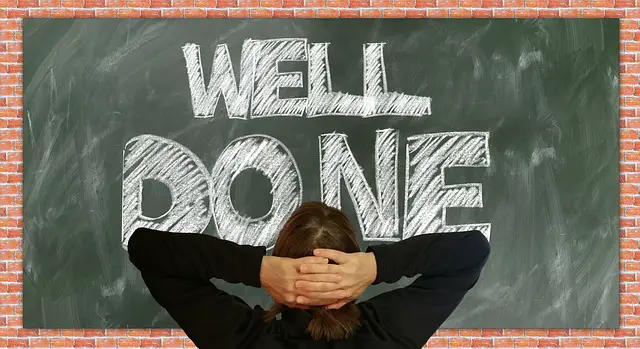Have you cornered yourself with the following statements?
- I cannot do anything.
- I am the one doing wrong.
- Other people are better than me.
- I am good for nothing.
If you have, then you have been in the self-criticism zone. Self-criticism by definition is to disapprove or criticize oneself/one’s own actions. In this fast-moving world, where competition is everywhere, people tend to self-criticize themselves. There is something called positive criticism and negative criticism. The type that hampers the growth of a person is negative criticism. This can lead a person to think very low of oneself. There is a fine line between self-criticism and self-correction. There are people who would call, self-correction, which is a positive way to point out the mistakes and work on them. And then, there are the other categories of people who take it in a negative way leading to depression, discontentment etc. I am sure nobody likes to stay in the disapproval land thus, there are a couple of ways, through which one can overcome excessive self-criticism.
An Exit from Self Criticism
I have been an average student all my academic life. What stopped me from crossing the average line was excessive criticism. Any competition or exam, I was never happy with my performance. I was always finding the grass greener on the other side. This continuous self-disapproval made me feel very low about myself. Even the things that I was best at, I started to fail in them. It wasn’t long when I realized that self-criticising was getting me nowhere. Then I made an exit plan from the criticizing zone.
1. Treat yourself like a friend:
One thing that I realized during the self-recovery period was that in all the hard times I had myself to lean back on. People in the midst of everything tend to forget that they are the constant support to themselves. One would feel a lot better if one starts treating oneself like a friend. Thus this is the first step.
2. Self Reflection:
This does not mean to reflect on the mistakes, rather this means to reflect on all the things happening in one’s life. This would give a person a better perspective towards life and oneself. Self-reflection can help a person look at things from a neutral and unbiased way.
3. Acceptance of the present situation:
It was always difficult to accept the things that were happening with me, thus moving on was complicated. Once I accepted the situation, I figured a different way out, which was less painful. Accepting the situation is a tough task. Sometimes people undergo very hard times and accepting those situations is not easy. But one has to come to terms with reality and move on because life is all about the next step that you take.
4. Adjusting one’s expectations:
Expectations can either make you or break you. If you perform well in any field, people tend to expect more from you. Disappointing people is tolerable, but disappointing oneself can break a person. Hence it is important to adjust the expectations according to one’s ability. Everyone is not same and this truth needs to be accepted.
An Entry to Self Appreciation
How many of us appreciate ourselves on the smallest achievements, or successes? As far as I am concerned my appreciation varied with the results of others. I often compared my success with others and found myself behind them. This was not self-appreciation. It was a comparison. Appreciation is very important to move ahead. For instance, if a child is appreciated on any kind of success, the child’s confidence reaches another level. The child will work harder to get more appreciation. And I am sure that all of us like appreciation, then why not start appreciating ourselves? There are some ways how one can do that:
1. Knowing the difference between Self Love and Self Obsession:
The first step towards self-appreciation is to love oneself. Loving oneself means, to accept oneself as a whole. It includes the perfections and the imperfections that the person has. Being comfortable with one’s own company is also a sign of self-love. Self-love can turn into a self-obsession. Thus one needs to draw the line there.
2. Be true to yourself:
If the person has accepted oneself completely then this step is easy. In order to avoid the self-guilt and blame game, it is better to accept the truth. Lying to one’s own self will lead a person nowhere.
3. Appreciate where you are:
One must appreciate, for how far one has come. Stuck in the swamp of self-criticism, one forgets to acknowledge this aspect.
4. Say what you feel:
It is better to let it out than keeping it in. Be confident and put forth your views. Let the idea/ thought/ view be as stupid or good as possible. Say what you feel, even if it is different from what the others feel.
If one follows this plan, they would notice that they have arrived the destination i.e. the self-appreciation land. When you feel stuck in the self-criticism area just remember these words by Louise L. Hay:
“Remember you have been criticizing yourself for years and it hasn’t worked. Try approving of yourself and see what happens.”
You will be surprised to see what you have, to offer yourself.
Author’s Bio
Joane Smith is a writer associated with Write me an assignment fast
She has written articles on various topics, like education, parenting etc. She likes to travel and cook occasionally.
Here at Positive Words Research, we are looking to share with our readers original content that hasn’t been published on other sites so if you are comfortable with Positive Words Research being your sole publisher, we are more than happy to share with our readers your inspiring and empowering story.
